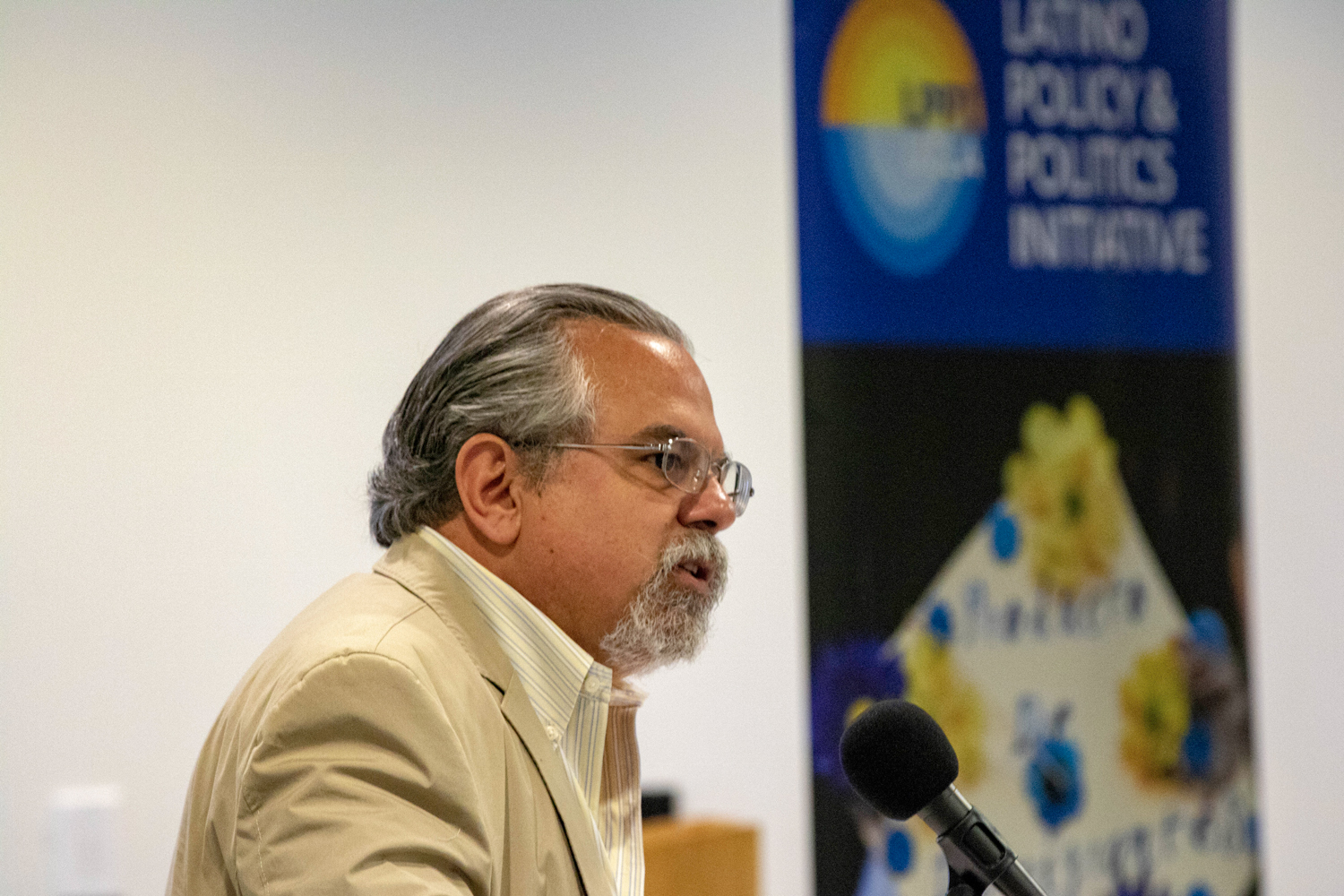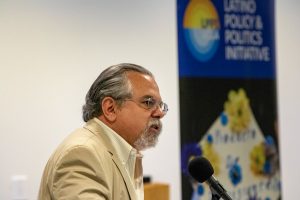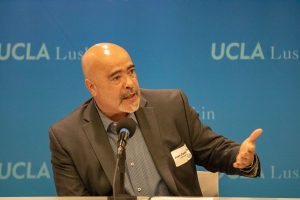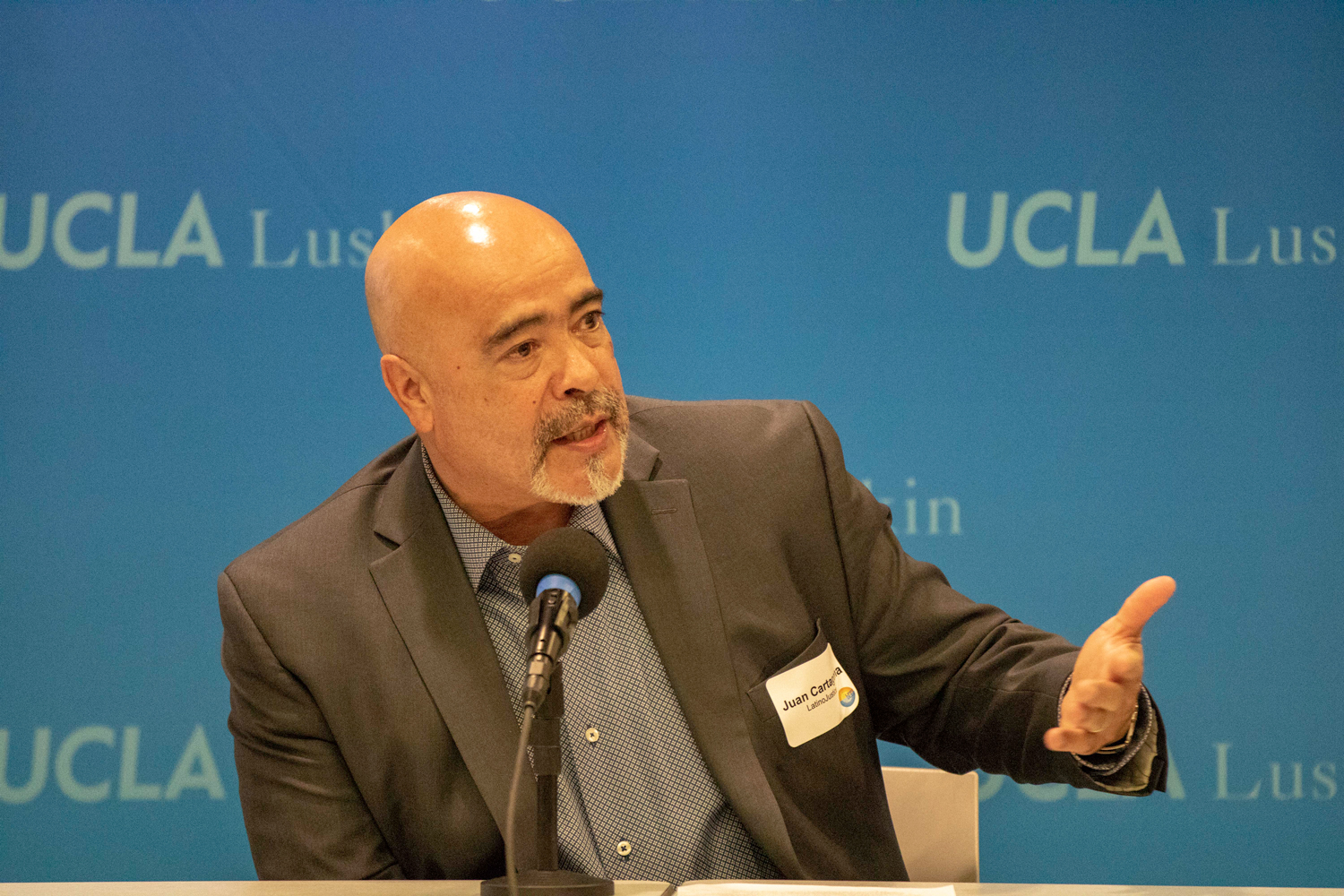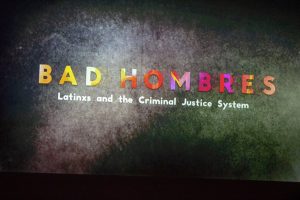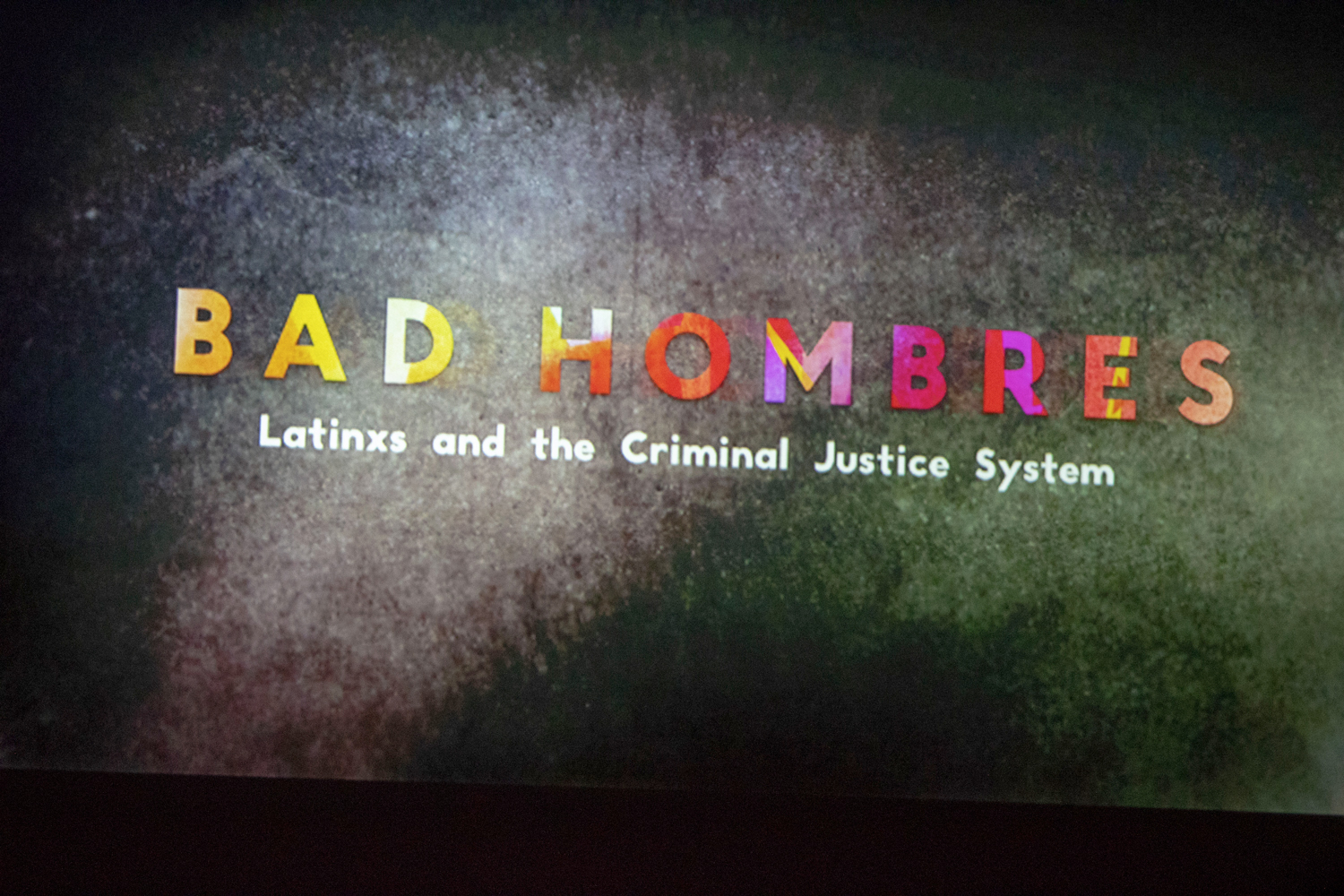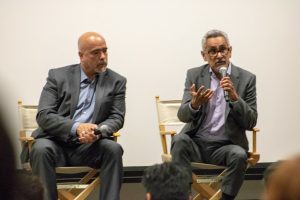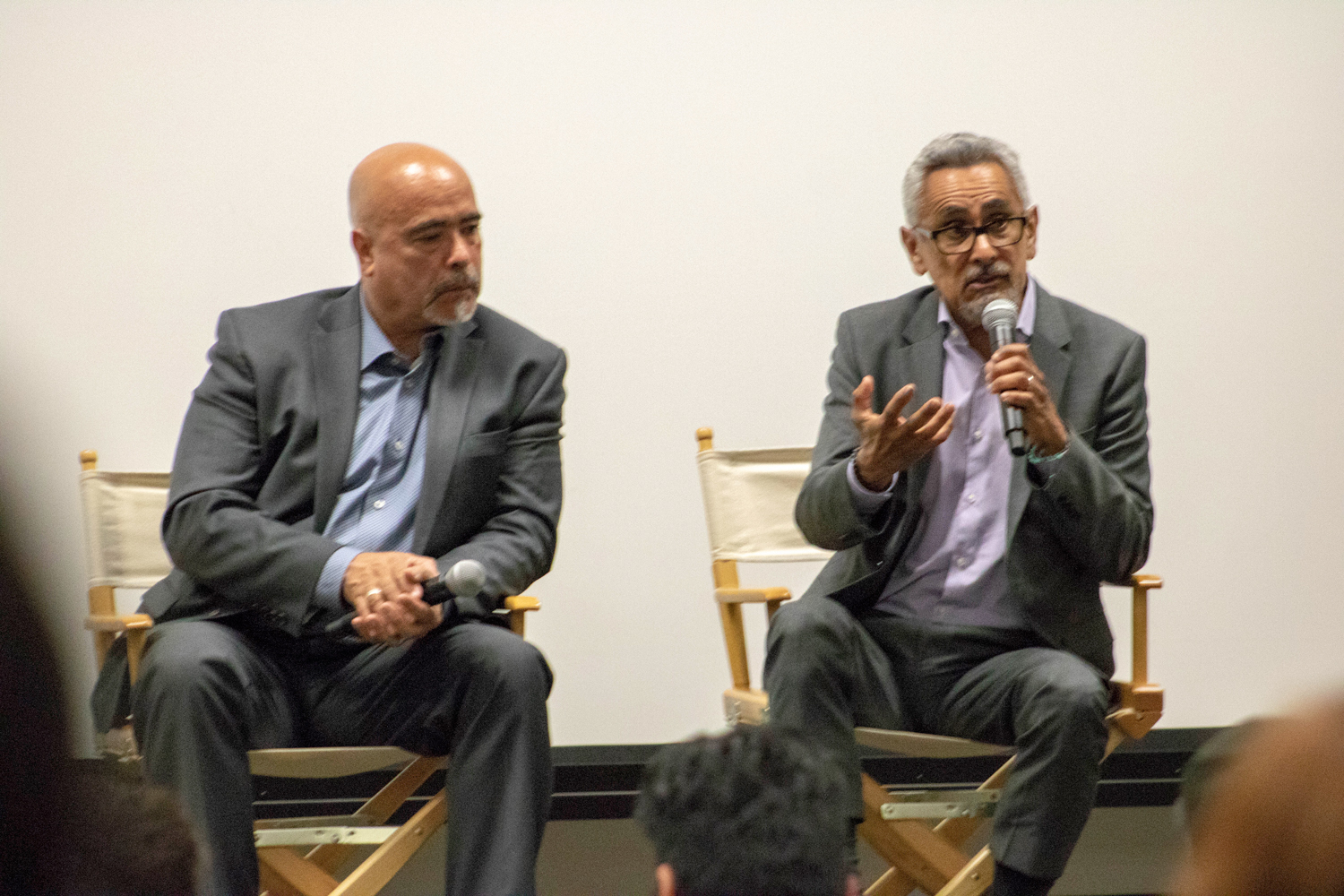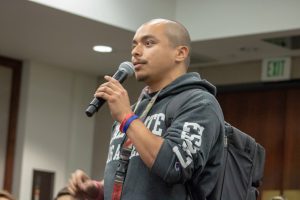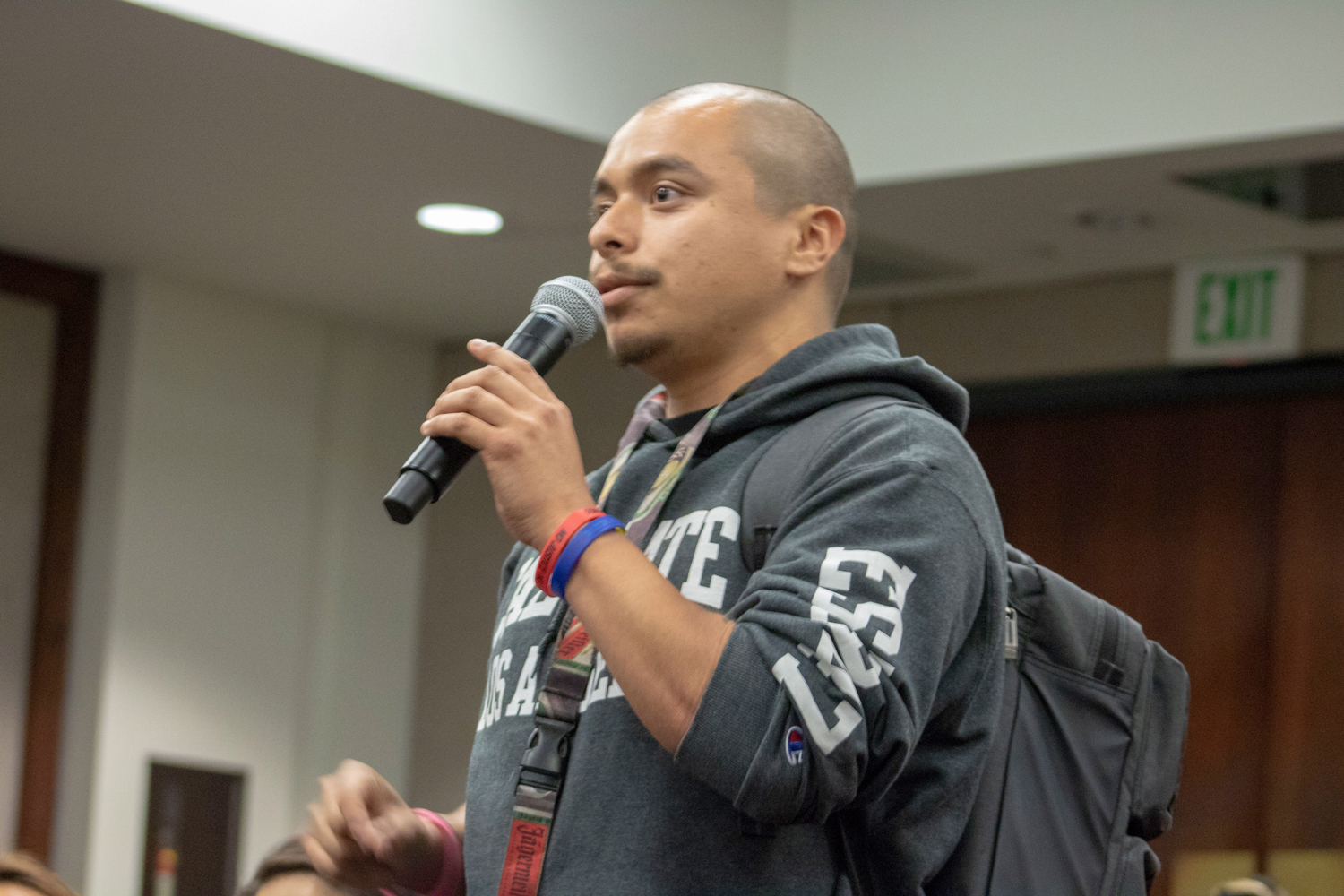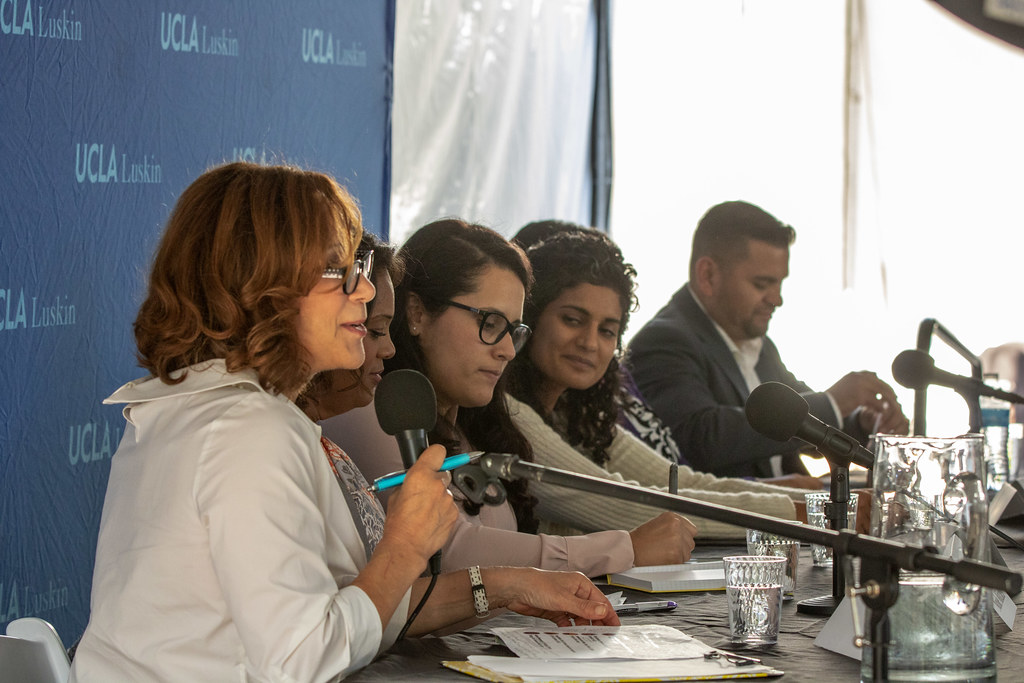A recent gathering at UCLA Luskin included a full-day of programming related to efforts to advance visibility on the experience of Latinos in the criminal justice system across the United States.
Dozens of experts and scholars on Latino issues at the local, state and national levels gathered on campus May 31, 2018, for a day of presentations and workshops organized by the Latino Policy and Politics Initiative (LPPI) and LatinoJustice PRLDEF. Attendees included a number of nationally known advocates for Latinos, including LatinoJustice President Juan Cartagena.
“It is so reaffirming seeing Latinx people talking about these issues,” Cartagena told a packed classroom of workshop participants, including several UCLA Luskin students. “Everyone in this room should be listed as experts.”
The sessions began with an introduction from Dean Gary Segura, who was also one of the participants in a high-level strategy workshop focusing on Latino civil rights and the U.S. criminal justice system.
He told attendees that he helped found LPPI in part to address a shortfall in research about issues of importance to Latinos, including inequalities in the criminal justice system.
“People across the ideological divide agree that this is an issue for the Latino community,” said Segura, who said he hoped the day would provide an opportunity for attendees to “think constructively about the things that have to happen” in order to bring about change.
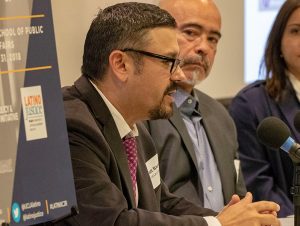
Matt Barreto answers a question during the opening panel, which was streamed live over social media. Photo by Les Dunseith
A discussion hosted by LPPI’s founding director, Sonja Diaz, followed with Cartagena and Matt A. Barreto, a professor of political science and Chicana/o Studies at UCLA and the other co-founder of LPPI. They zeroed in on the fact that national discussions have historically downplayed the impact on Latinos of criminal justice policies related to policing, mass incarceration or unequal rates of prosecution.
“Why are Latinos invisible in this discussion?” Barreto asked. “It’s because we are invisible in the data.”
For example, the U.S. Census has historically grouped Latinos with whites in its tabulations based on ethnicity. And this shortcoming has been replicated in much of the research at the state and local levels.
“So many people don’t count Latinos,” Barreto said. “This makes advocacy impossible.”
Today, some states still do not count Latinos as a separate group, he said. Even when Latinos are specified in the data, “some counties have better data than others.”
Discussions like this one continued for several hours, and participants had an opportunity to hear from wide range of people — scholars, policymakers and community advocates. That evening, the participants viewed a sneak peek of the in-progress documentary, “Bad Hombres,” by award-winning filmmaker Carlos Sandoval, and then heard from the director, Cartagena, UCLA lecturer Virginia Espino, and from some of the people featured in the film.
Noting an “insurmountable amount of knowledge of Latino criminal justice knowledge on the stage,” second-year UCLA Luskin student Gabriela Solis Torres participated in the gathering and shared her impressions via social media, saying, “I am so honored to be in the same of the room as such inspiring leaders.”
View additional photos in an album on Flickr

